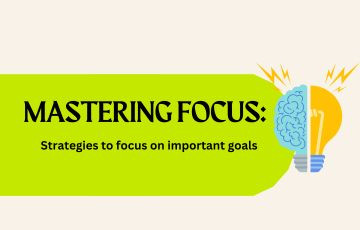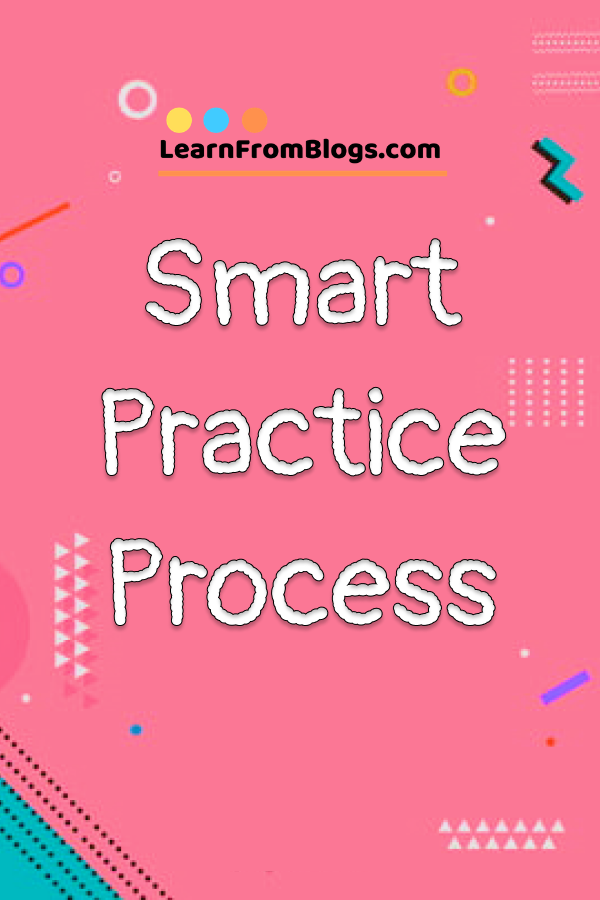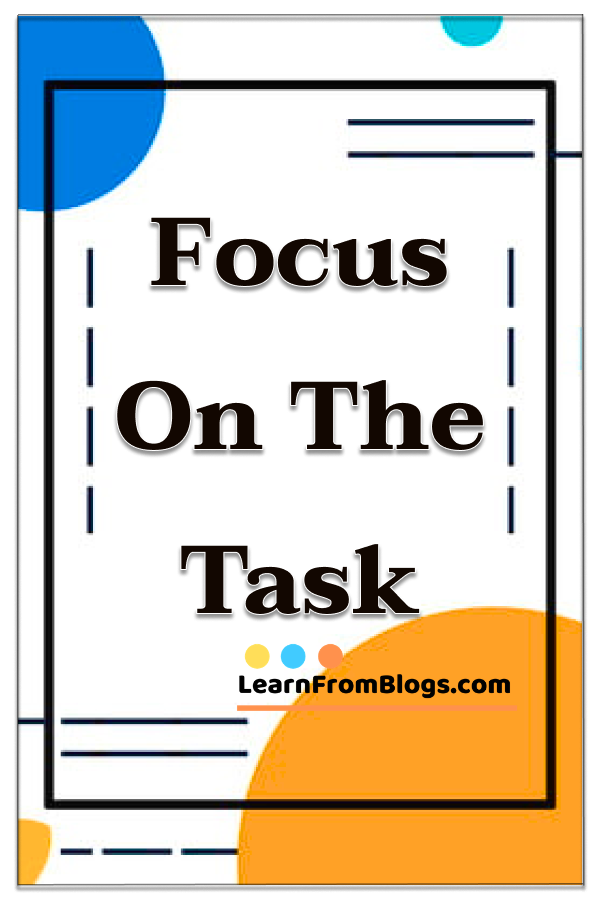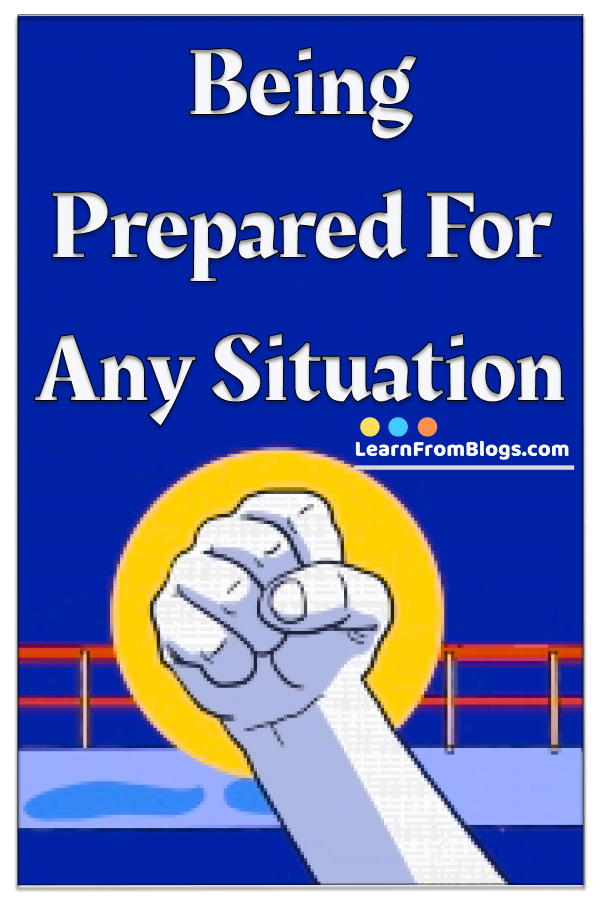
In today's fast-paced world filled with distractions, maintaining focus can feel like an uphill battle. Whether it's the constant ping of notifications, the allure of social media, or the never-ending to-do list, staying concentrated on tasks has become increasingly challenging.
In this blog post, we'll explore effective techniques to help you enhance your focus and stop wasting precious time.
1. Prioritize and Plan
Create a To-Do List: Start each day by outlining your tasks and setting priorities. Break down larger tasks into smaller, manageable steps to avoid feeling overwhelmed.
Use Time Blocking: Allocate specific time slots for different activities throughout your day.
Identify High-Impact Tasks: Determine which tasks will have the greatest impact on your goals and tackle them first when your energy levels are highest.
2. Minimize Distractions
Set Boundaries: Establish clear boundaries with yourself and others to minimize interruptions.
Turn Off Notifications: Silence notifications on your devices or use apps that temporarily block distracting websites and apps during work sessions.
Designate a Distraction-Free Zone: Create a designated workspace free from clutter and distractions to signal to your brain that it's time to focus.
3. Practice Mindfulness
Mindful Breathing: Take a few moments throughout the day to focus on your breath. Deep breathing exercises can help calm the mind.
Mindful Task Switching: Instead of jumping from one task to another impulsively, practice mindful transitions between activities.
Mindful Movement: Incorporate short breaks for physical activity or stretching to rejuvenate your body and mind.
4. Cultivate a Productive Environment
Optimize Your Workspace: Arrange your workspace to promote focus and productivity.
Limit multitasking: Contrary to popular belief, multitasking can hinder productivity and diminish the quality of your work.
Reward Yourself: Set achievable goals and reward yourself upon completion. Celebrating small victories.
By implementing these strategies into your daily routine, you can train your brain to focus more effectively and minimize time wasted on distractions.
VALUE YOURSELF:
Self-respect and self-esteem are the primary important things in our life. These enhance the beliefs of a person about his/her worthiness. When you value yourself and love yourself, you can make the right decision for yourself and others too. That’s why you love yourself and respect yourself before others.
BE FOCUSED:
You should have a clear vision of what you want in your life. It can be anything like being a successful homemaker or an inspiring entrepreneur or achieving the success of being the youngest CEO of your company. You first learn how to focus on your goals. Don’t be confused and make things unnecessarily complicated. It’s your life, and you can be whatever you want to be. All you need is to believe in yourself.

Games are appealing to both old and young alike. Putting Brains on Games can help improve memory and focusing ability at the same time. Brain training puzzles even help calm the mind.
Brain games also provide Smart Practice to the mind to be successful in whatever job you are undertaking by:
- upping problem-solving skills
- enhancing flexibility and
- increasing the speed of processing information
Some games are available in print, and some are available online. Few games are free, and some need you to take a membership. Here is a list of some excellent brain games to improve memory and concentration:
1.) SUDOKU
2.) CROSSWORDS
3.) BRAINGLE
4.) LUMOSITY
5.) QUEENDOM
6.) HAPPY NEURON
7.) BRAIN AGE CONCENTRATION TRAINING
8.) ELEVATE APP
9.) MYBRAINTRAINER

While we like to keep our bodies active through gym practice, etc., the brain is usually neglected. The brain is an essential part of our body, without which all body parts can never function.
The brain is working every day without a break. Unlike other organs, the mind never rests. To keep it healthy, one needs to give it ample practice and exercise. To keep the brain focused, you can do the following:
- Break your routine at times. Set off on an adventure, experiment with new stuff, mix and match exercise, etc., to keep it healthy.
- Take in brain food like salmon, Omega-3 fatty acids to make your brain strong.
- Solve puzzles and word games. Start from a low level and advance as you can answer questions.
- Stress – keep stress under control to save your mind. Solve stress points as soon as possible, so that sleep deprivation and prolonged stress does not affect the healthy working of the brain.
- Take proper food and exercise your body, keeping it in good shape to play games, etc., which provide multiple benefits to the mind.

FITNESS
Smart practice during fitness regimes means:
- Attention to detail
- Focusing on the act
- Practicing the perfect move-in whatever fitness activity you are undertaking – whether it is intense training or aerobic training or circuit training, etc.
The results of smart practice may not come your way quickly. But if you go back to the basics, start again, and observe, you will learn the skill soon. Until then, keep Smart Practicing.

Though writing comes naturally to a few, those interested in pursuing this art should resort to smart practice writing to top the game. The route to excellence in writing follows this smart practice path…
- Reading many books to improve vocabulary
- Reading also helps you to understand writing styles and to develop one for your own
- Focus on basics – grammar, sentence structure and other essentials of good writing
- Write daily and revise your drafts many times
- Take a writing partner for motivation and editing help
- Write for prompts regularly, attend workshops
- Seek expert opinion continually for improvement

Most effective musicians practice smart. How?
Here are some pointers as to how to aim at the levels of experts:
- Practice often… yes there is no shortcut to success
- Be consistent – allocate some time for practice regularly
- Long sessions can tend to bore you sometimes. So, practice in short but intensive sessions, which means, you need to practice for regular sessions in short bursts through the week instead of one long weekend session
- Make a list of jobs you want to accomplish in the session before you start practicing
- Don’t keep high expectations as they may overwhelm you during practice
- Engage diligently
- Perfect your techniques – because it is the most critical part of training for music
- Relax while practicing… over focus and stress do not produce good results
- Do not practice what you already know. Concentrate instead on your weak areas
- Create some good habits and follow them judiciously
- Practice until you get your note right. Then, practice the note that you just played correctly. When you practice the correct version, your arms will memorize that act and play correctly when you are performing.

Dedication is most important when taking up any activity. Without commitment, you can never excel in a skill.
Whenever you are practicing for cricket, hockey, golf, football, or any other sport, keep the following smart practice guidelines in mind:
- Lay a strong foundation of the sport in your memory by getting your basics right
- Practicing the wrong technique for hours may not make you effective – get your techniques right
- Again quality over quantity when practicing is important
- Seek advice from experts and coaches if you want to get your technique perfectly
- Once you get your basics right, keep practicing, repeating again and again
- Next, you can practice in match-playing like conditions such as strength and weakness of opponents, climatic conditions (that affect some sports), pressure situations, etc.

1. The intense practice is the need of the hour, though short, it should be high on focus and vision.
2. Skills and talents need not be genetic that you inherit from your forefathers. Deliberate and structured practice done with patience and focus driven by curiosity would get you there soon.
Smart practice can be applied to various areas and skills. Athletes, musicians, students, office goers, fitness enthusiasts, even an average person involved in any activity or performance of skill can benefit from the smart practice.

Clearly, baseline level skills acquired through regular practice are not enough to excel in it! You can be a specialist with particular expertise only with smart training. Musicians, sportspeople, and many others have achieved high levels of success due to repeated smart practice.
Here are some guidelines for smart practice in other practices:
- Be practice-ready with your goals, motivations and what you expect from your practice sessions
- The goals may be short term or long term – plan accordingly.
- Some roadblocks for smart practice are procrastination, self-doubt, and distraction.
Plan some strategies like the following to overcome them:
- Procrastination can be combated by cultivating good habits
- To combat self-doubt,
Do the following:
Seek inspiration and motivation from peers and well-wishers. Sometimes you can adopt some motivational strategies to boost your morale.
Don’t expect too much from yourself/don’t pressurize yourself much. Set goals that do not overwhelm you.
Distractions – make a list of what usually distracts you and find ways to counter it. In case you still have problems with attention spans, make your sessions smaller, take tiny breaks and give-in to your distractions during those breaks.

Repeated practice gets us to a level where our skill becomes our reflex. The skill is acquired but at mediocre levels.
Dedication and enthusiasm at the start are high, but we tend to lose focus in later stages as the tasks become repetitive and routine. Consecutively, minute details go unnoticed.
Examples: cooking, driving, washing clothes, cycling, etc.
Taking a single example…
Most of us know cycling. But professionals who take part in cycling competitions build up their knowledge of this skill to higher levels such that they can win races using various strategies and techniques imbibed through smart practice.

FOCUSING – helps you notice/recognize obstacles and remember how to overcome them in the future when the time comes actually to use those skills.
ONE THING AT A TIME – focus on one mistake – correct it and only then go to the next one.
CURIOSITY – to know what is happening in practice – it helps you realize the change that you need to adapt to perfect it.
PATIENCE – try, try, and try again till you succeed. THEN YOU PRACTICE MORE!
We lead busy lives, and time for practicing becomes difficult. So whenever we get some time, we must practice smart.
Practicing smart means undertaking short, intense workouts with extreme attention to minute details, focusing on the basics, getting the techniques right, and practicing again when you have excelled in it.

Of course, the most important thing to be useful is to Focus on the task at hand.
Paulo Coelho rightly said…
“Whenever you want to achieve something, keep your eyes open, concentrate, and make sure you know exactly what it is you want. No one can hit their target with their eyes closed.”
If you take up more than one job and are not able to give your utmost attention, then the output will not be what you desired. Doing less, i.e., taking up only a particular job and giving your all will help in doing it better and producing better results.
In the process, strictly avoid distractions!
- Ignore co-workers who want to chat
- Avoid social media
- Let non-urgent emails wait
- Keep the notification button switched off temporarily
- Use the Internet only to give you solutions to reach your goals. Let it not be a distraction that is deviating you away from your vision or purpose
Example: If you are a homemaker planning to upload a cooking video on YouTube, focus on it, and avoid the juicy gossip going around the neighborhood.

At one point in time, human multitasking was hailed as the most excellent solution for improving productivity. Recent studies have found that multitasking may not be as productive as thought earlier but may cause an increase in errors, reduction in productivity, and ultimately generate immense frustration.
During performing many tasks together, if one task goes wrong, its effect will spill over to other tasks as well. You might also experience severe stress in the process.
But when you do one task after another, you will experience overall efficiency. Hence the need of the hour is to take up one task and do it effectively before going to the next one.

Selective working refers to taking up a few tasks and performing it with utmost focus and attention for fruitful consequences.
For example: Assume you are a General Manager of a big firm. There is a simultaneous issue to resolve in two departments – Sales and Production. You can ideally take up one issue and delegate another.
In case you can delegate both, then do the same and involve yourself only at the final stage when you can only make a significant decision. This way, you save your time and energy for any other pressing matters or just concentrating on your firms’ long term goals in the position of a General Manager.

“Success at anything will always come down to this: focus and effort. And we control both”. – The Rock
To become a champion in your set field, practice mindfulness.
- Focus on your surroundings
- Let your thoughts and emotions directed towards positivity
- Eat, work and sleep mindfully
- Mediate and reap benefits of it such as inner peace, inspiration and additional energy
Mindfulness helps to improve concentration while
- Became aware that your body needs to achieve success
- Appreciate your surroundings and even competitors
- Accept situations and not be bogged down by extreme

Save for a rainy day. There is a lot of truth in that statement. You can face any eventualities, especially health issues or losses in business or funds for a new enterprise if you maintain some savings.
Start setting your finances right by first clearing your existing debts. Start paying back today, even if in small payments. Complete paying as quickly as possible so that you are debt-free when an eventuality occurs.
Next, turn your focus and attention towards saving. Plan on how to reduce spending and increase savings. Keep an emergency fund ready so that you need not approach others for financial help when needed.
Be positive
Always have a positive state of mind. Focus on positives but also be ready to learn from the adverse outcomes. Learn from these experiences to be stoic and not get upset or anxious quickly when you divert your focus and attention on positive aspects than you will see the best aspects of a situation.
When you see the better aspects, you will have the confidence to negate or use that situation in your favor. When you are concentrating on negative aspects, you will only be left with disappointment and stress that will block your progress.
Develop the right mindset. Whatever the situation, learn to accept and move forward. Life is ever-changing. This change can help you learn and grow. Understand that external details keep altering. You cannot control external events but can change the way you respond to them.
Internal events are what you should be worried about. Keep yourself strong. Save yourself from the depths of depression due to untoward situations by remembering that you can come out of the situation soon. Do adopt philosophical doctrines if you find them helping you positively.

Everything changes, over a period! Life begins, soars, and ends. The weather changes, bringing bounty or destruction. Businesses commence – touch heights, survive setbacks, or falls out to the competition.
Eventualities are routine
When there is a high, there is also low. Hence, the wise always prepare themselves for situations or eventualities by taking certain steps. Some examples:
1.Teachers preparing students for exams;
2. Ingredients readied by cooks for the feast;
3. Prevention is better than cure is followed seriously by the health-conscious
4. Planning for the future is done by Companies
The need to be prepared
There is no end to the probability of situations that may arise in the future. Some of these may lead to negative results even. In such a scenario, being prepared can help you correct the wrong or handle it without being affected by it. Some such scenarios are that you may face
The tough project at work
A family crisis
Preparing for an interview
Public performance
Camping or an outstation tour
Loss of a close family member
attack by aliens(a hypothetical situation), in which case keep a survival kit ready

Being prepared is the best way to mitigate any eventuality. For foreseen situations, you can use your experience and advice of others to be ready. For unforeseen eventualities, you should guess or cover using Insurance.
Whatever be the outcome of a situation, one should keep calm, be positive, be financially sound, and practice mindfulness. In case you are not able to handle it yourself, it is better to seek the help of a professional person to do so.




